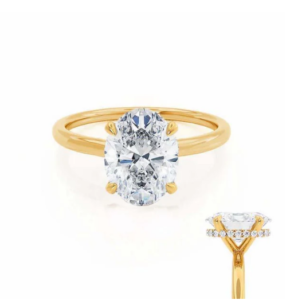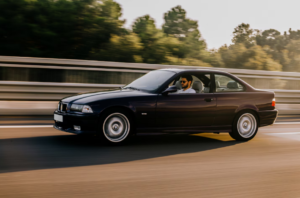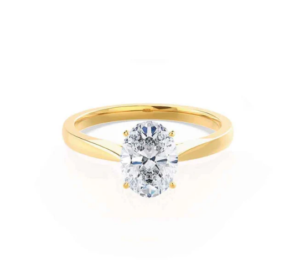Exploring the Luxury Car Market: Trends and Consumer Preferences

The luxury car market has always been a fascinating segment of the automotive industry, characterized by its innovation, exclusivity, and the ability to set trends that often trickle down to mainstream markets. As we navigate through the 21st century, the luxury car market continues to evolve, driven by technological advancements, shifting consumer preferences, and a growing emphasis on sustainability. This article explores the current trends in the luxury car market and examines what consumers are looking for in their high-end vehicles.
Technological Advancements
One of the most significant trends in the luxury car market is the rapid integration of cutting-edge technology. Luxury car manufacturers are at the forefront of developing and implementing advanced technologies that enhance the driving experience, improve safety, and offer unparalleled convenience.
Autonomous Driving
Autonomous driving technology is a major focus for many luxury car brands. Companies like Tesla, Mercedes-Benz, and BMW are investing heavily in developing self-driving features. These features range from advanced driver-assistance systems (ADAS) that provide partial automation, such as adaptive cruise control and lane-keeping assistance, to fully autonomous capabilities. The appeal of autonomous driving in the luxury market lies in its promise of safety, convenience, and a glimpse into the future of mobility.
Connectivity
Connectivity is another critical area where luxury cars are leading the way. Modern luxury vehicles come equipped with sophisticated infotainment systems, seamless smartphone integration, and advanced telematics. Features such as over-the-air (OTA) updates, which allow for remote software upgrades, and integrated digital assistants like Amazon Alexa or Google Assistant, are becoming standard. This level of connectivity ensures that luxury car owners are always connected, informed, and entertained.
Emphasis on Sustainability
As environmental concerns become more pressing, sustainability is becoming a key trend in the luxury car market. Consumers are increasingly looking for vehicles that offer high performance without compromising on environmental impact.
Electric and Hybrid Vehicles
Electric vehicles (EVs) and hybrid vehicles are gaining significant traction in the luxury segment. Brands like Tesla have already made a substantial impact with their high-performance electric cars, while traditional luxury brands such as Audi, Porsche, and Jaguar are expanding their electric and hybrid offerings. These vehicles not only provide impressive acceleration and cutting-edge technology but also align with the growing consumer demand for eco-friendly transportation options.
Sustainable Materials
In addition to focusing on powertrains, luxury car manufacturers are also exploring the use of sustainable materials in their vehicles. This includes the use of recycled and renewable materials for interior and exterior components, as well as innovative approaches to reducing the environmental footprint of manufacturing processes. Brands like BMW, for example, have introduced models with interiors made from recycled plastics and natural fibers, catering to eco-conscious consumers.
Design and Customization
Design has always been a crucial aspect of luxury cars, and today’s consumers are looking for more personalized and unique options.
Bespoke and Customization Services
Luxury car buyers are increasingly seeking bespoke services that allow them to customize their vehicles to reflect their personal tastes and preferences. Manufacturers like Rolls-Royce and Bentley offer extensive customization options, from unique paint colors and bespoke interiors to personalized engravings and exclusive features. This level of customization ensures that each vehicle is truly one-of-a-kind, catering to the desire for exclusivity among luxury car owners.
Innovative Design Elements
In terms of design, luxury cars continue to push the boundaries of what is possible. Sleek lines, aerodynamic shapes, and innovative use of materials are hallmarks of modern luxury vehicles. Brands are also experimenting with new design elements, such as augmented reality (AR) displays, which project information onto the windshield, and advanced lighting systems that enhance both aesthetics and functionality.
Consumer Preferences
Understanding consumer preferences is essential for luxury car manufacturers to stay ahead in the competitive market. Current trends indicate a shift towards a more holistic and experiential approach to luxury.
Performance and Driving Experience
While technology and sustainability are important, the performance and driving experience remain paramount for luxury car buyers. Consumers in this segment expect powerful engines, superior handling, and a smooth ride. Brands that can deliver an exhilarating driving experience while incorporating advanced technology and sustainability features are likely to succeed.
In-Car Experience
The in-car experience is also a significant factor for luxury car buyers. This includes not only the comfort and quality of materials used but also the overall ambiance and functionality of the interior. Features such as advanced sound systems, climate control, and comfortable seating are crucial. Additionally, luxury car buyers are looking for intuitive and user-friendly interfaces that enhance the driving experience without causing distraction.
Brand Heritage and Prestige
Brand heritage and prestige continue to play a significant role in the luxury car market. Consumers are often drawn to brands with a rich history and a reputation for excellence. The allure of owning a vehicle from a prestigious brand can be a strong motivator, as it reflects status and success. Manufacturers that can blend tradition with innovation are particularly appealing to luxury car buyers.
Conclusion
The luxury car market is dynamic and continually evolving, driven by technological advancements, sustainability efforts, and shifting consumer preferences. As brands continue to innovate and adapt, the focus remains on providing an exceptional driving experience, cutting-edge technology, and personalized options that cater to the desires of discerning consumers. Understanding these trends and preferences is essential for manufacturers to remain competitive and meet the demands of the modern luxury car buyer. Whether through autonomous driving features, sustainable materials, or bespoke customization options, the future of the luxury car market looks promising and exciting.






